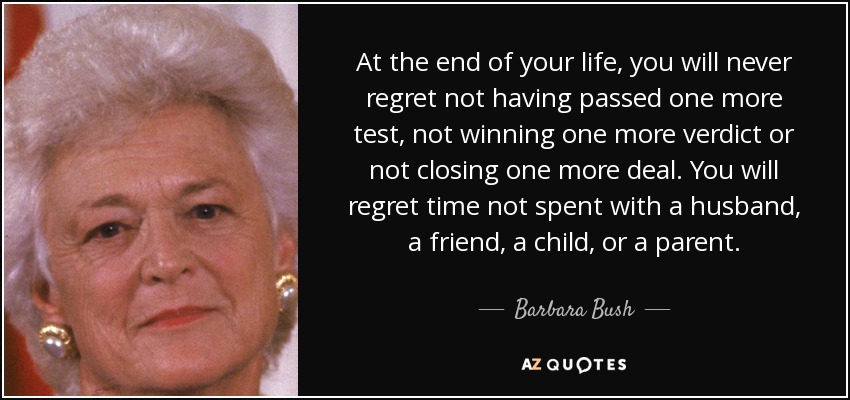Click here to return to Blog Post Intro
Everybody Cheats
Many people choose to give up one thing in hope of gaining something else of greater value. That’s especially true with our schedules. We face a variety of responsibilities and opportunities—work, family, hobbies, clubs, sports. The list is endless. Each competes for our attention. Each competes for our most valuable resource: our time.
So we “cheat.” We give up certain opportunities for the sake of others.
Andy Stanley has spent hundreds of hours with men and women who’ve cheated their families for the sake of their career goals. They all admitted knowing there was a problem.
We all wrestle with the tension between work and family. When Work and Family Collide is about establishing priorities. A priority is something you say yes to even when it means saying no to other important things. Everybody “cheats” like this. It’s a principle already at work in your life … one way or another.
PART ONE: INSIDE THE CHEATED HEART
When Your World Needs Reordering
As Andy Stanley puts it, “Like many people I know, I love what I do. I rarely have a bad day at the office. My work environment couldn’t be any better suited for my gifts and personality. I love to go to work. And like you, I have more to do than I can ever hope to get done. At the same time, I love my wife and kids. I love to go home. And like you, there’s more to do at home than will ever get done. Never once have my kids looked at me and said, ‘Hey, Dad, we’ve played enough. Why don’t you run back in the house and see if you can get some work done?’”
What it boils down to is this: Someone’s going to get cheated. Worse yet, somebody’s going to feel cheated. You’re not giving him or her what is deserved or needed. In that sense, the issue is never “Am I cheating?” The issue is always “Where am I cheating?”
The problem is this: there’s not enough time to get everything done that you’re convinced—or others have convinced you—needs to get done. As a result, someone or something isn’t going to get what he wants from you … what she needs from you … what he deserves from you … certainly not what she expects from you. There’s no way around it.

Our knee-jerk reaction to this dilemma is to answer the call of the squeakiest wheel. But that certainly isn’t strategic, and it doesn’t solve anything. Over time, our families learn that the only way to get our attention is to create a crisis.
There was a CEO who spent twenty-nine days with his wife at a detox center six hundred miles from their home. Twenty-nine days. Yet in the previous three years, he had done almost nothing in terms of investing in what he would tell you now is his most important relationship. And if anyone had suggested he take a twenty-nine-day vacation in order to invest in his marriage, he would have laughed. But he did—only when he had to.
Instead of allowing the most recent crisis to force the issue, why not be governed by the greatest purpose? Why not “cheat” by design?
Put this principle to work for you, before the consequences of ignoring it have a chance to work against you.
Collision Course
On average a person will spend about one-third of his waking life at work. And for many people, a vast majority of the other two-thirds is dedicated to some part of pursuing or maintaining a family. Success or failure in either category will have a direct impact on your overall quality of life, your mental outlook, and your self-esteem.
Both work and family originate with the same Source: God. He created them to peacefully coexist.
Whenever there’s destructive tension between two things that are designed to work together, it usually points to “operator error.” And when a problem persists, the best thing to do is check with the Manufacturer.
At the climax of creation, God expressed his creativity in an unexpected way: The LORD God took the man and put him in the Garden of Eden to work it and take care of it. (Genesis 2:15) God made man and placed him in the garden to work. From the very beginning, he intended for man to work.
Whereas work is task focused, the family is relationship focused. One is about doing, while the other is about loving. In one environment we find our worth through accomplishment. In the other we find our value simply by who our relatives are. Work is about doing. Family is about being. The members of my congregation want me to show up prepared to speak. My family is happy if I just show up.
When sin entered the world, conflict was introduced into both environments. Man would henceforth struggle at work (see Genesis 3:17–19) and women would feel the pain of childbirth (see Genesis 3:16). And men and women would struggle in their relationships with one another. (See Genesis 3:16, which implies that Eve would have a desire to rule Adam, but in fact, he would rule over her.)
Contentment is found neither in the marketplace nor the family alone. It’s found when we align our priorities with his as it relates to both areas of responsibility. There’s nothing honoring to God about the workaholic who neglects his or her family. But the man or woman who refuses to provide for the family brings no honor to him either.
Who are you cheating? Better yet … Who feels cheated?
In the world of relationships, we live with the illusion that good intentions—the desires of our hearts—somehow heal the wounds we’ve created with our absences and mis-prioritization. We are asking God to fill a gap that only we can fill while we scurry off to do a job that a thousand other people could do. We might as well pray, “Dear God, you do what only I can do while I go do what many others could do just as well or better.”
Stanley writes, “In all my years of counseling, I can tell you something I’ve never heard. I’ve never talked to an adult who reported that while he was growing up his father worked all the time, but God filled in the gaps, and there was no residual relational or emotional damage. I’ve never talked to a mom who reported that her husband neglected his family for the sake of his career, but fortunately, God filled the void, and everything was fine.”
Picking Up the Pieces

Do you know what your family wants from you more than anything else? They want to feel like your priority. It’s not enough for them to be your priority. They must feel like it.
The problem is, you love your family in your heart, but you don’t love them in your schedule. And they can’t see your heart.
Whenever you compromise the interests of a family member in order to fill gaps somewhere else, you shuffle your priorities.
It sends the message: You’re important … but right now something else is more important. When we take advantage of a family member’s willingness to support our dysfunctional schedules and mis-prioritization, we send a message of rejection. When you take loyalty that belongs to your family and give it to someone else—your boss, manager, supervisor, co-workers, potential clients, or investors—family members don’t feel as if you aren’t being as loyal as you should be. They feel rejected. Again, that’s not what you intend to communicate. But actions speak louder than intentions. Nobody can see your heart.
You’ve got to slow down long enough to check your family’s vital signs. We generally know when something’s up. We’re rarely blindsided by problems on the home front. The real issue is whether we’re willing to pull out of the fast lane long enough to find out what’s going on.
Everyone’s busy. All of us have more to do than we’ll ever get done. We all have to prioritize some things and slight others. When you do this strategically, you leverage your busyness for the sake of what’s most important. Then you communicate the message our families long to feel: “You are important to me. You’re more important to me than anybody or anything else in my world.”
Double-Edged Sword
All of us need a reality check every once in a while. Nobody stays on the right side of the road without lines and guardrails. On more than one occasion, Andy’s wife (Sandra) has looked at him and said, “I’m beginning to feel like a single parent.”
Christ honored us by considering our needs before his own. At the same time, he honors us by laying down the laws of relationship and holding us accountable to them. He submitted himself, while at the same time, he requires our submission. It’s through mutual submission that the created and the Creator experience intimacy. And so it is with a husband and wife.
Every time you cheat your family—no matter how trivial—it represents a draw against someone’s emotional strength. Every time.
On the marketplace side of the equation, you’re expendable. Even if you own your own company, you’re expendable. You know that. At home you play a unique role. You’re the only father or mother your children will ever have. The health of your marriage determines the environment in which your kids grow up.
In choosing to put your family first, you’ve brought your priorities in line with those of your heavenly Father. And when you surrender your will to the Father, he takes responsibility for the outcome of the journey.
PART TWO: STRATEGY FOR CHANGE
Tale of Two Kings
In Daniel 1:3–5, Daniel drew the line when it came to his diet. Eating from the king’s table had overtones that Daniel wasn’t comfortable with. Traditionally, the Babylonians worshiped their pagan gods through offerings of meat and wine. After they offered the meat and wine to the gods, the leftovers were eaten by the king and his court as a final gesture of loyalty.
Daniel had to choose. He had to commit himself to one side or the other. Either he would cheat God of the devotion he deserved or cheat the Babylonians of the cooperation they demanded. Daniel’s choice of diet was an indication of where he placed his loyalty.
Where you spend your time is an indication of where your loyalties lie. In effect, you pledge your allegiance to the person or thing that receives your time.
If you were asked how loyal you were to your family, you would answer in extreme terms. But the chief indicator from your family’s perspective is different. It boils down to time. The problem is, your employer or client judges your loyalty in the same way: time. And there’s not enough time to go around.
But Daniel resolved not to defile himself with the royal food and wine (Daniel 1:8). This is how lasting change begins. It begins with a decision. Before Daniel knew the outcome of his decision, before he understood how he would address the issue with his supervisors, he made up his mind.
If you’re ready to redirect your priorities, three things are probably going to be required.
- First, you’ve got to make up your mind. You’ve got to decide to quit cheating at home before you know how you’re going to pull it off, before you know how things are going to sort themselves out.
- Second, once you’ve made up your mind, you need to come up with a plan—an exit strategy from your current schedule—and present it to your employer.
- Third, like Daniel, you need to set up a test—a trial for the plan.
Make Up Your Mind
Daniel didn’t know how. He didn’t know the where or when. But he knew the what. He made up his mind from the beginning that he wouldn’t defile himself, regardless of the outcome.
The temptation is to substitute a condition for a commitment. “When I …” “If they …” That never works. Once you make your commitment conditional, you’ve just underscored the fact that your spouse and the kids really aren’t the priority after all.
Reprioritizing your world around your family is not just a good idea; it’s a God idea.
To ask your family to take the leftovers is more than insensitive. It flies in the face of everything we’re taught in the New Testament about the family. Nowhere in Scripture are you commanded to lay down your life for your stock options. Or to love your career like Christ loved the church. We’re instructed to do our jobs and love our families (see Colossians 3:23). When you love your job and do your family, you’ve not only stepped outside the bounds of family life, you’ve stepped outside the will of God.
As Charles Stanley (Andy’s Dad) is fond of saying, “God doesn’t reveal his will for our consideration. He reveals it for our participation.”
There are two big benefits to making up your mind in the face of uncertainty.
- Momentum: Only something as powerful as a heartfelt conviction could reverse the misdirected momentum caused by your mis-prioritization. It’s a simple matter of physics. When you’re going up against an obstacle bigger than you are, momentum is the only equalizer.
- Focus: A firmly held conviction sharpens your focus. When you commit to a direction, it narrows your options. And that in turn forces you to focus only on the options that will lead to the desired results. Making up your mind not to cheat your family anymore is a decision. Interestingly, the Latin root for the word decidere means “to cut off.” Deciding not to cheat at home involves “cutting off” those behaviors and habits that are contrary to your new conviction. Giving up good things for the sake of what’s best is not easy, even when we’re convinced it’s right.
What exactly are you committing to do? Spending more time at home and less time at the office isn’t specific enough. The more specific you are about the results you feel called to achieve, the easier it will be to follow through. And the easier it will be for others to hold you accountable. Daniel was pretty specific: no meat and wine from the king’s table. That was his nonnegotiable. So what’s your nonnegotiable? What does it look like?
Mature Christian men and women fall into the trap of overinvesting at work for the sake of a big payoff down the road.
Andy explains, “From the very beginning I knew what could happen if I wasn’t intentional about how I divided my time. The advantage I had was growing up in the home of a successful pastor who made his family a priority. My dad was home for dinner. I feel so strongly about this principle that I encourage our staff to follow suit. ‘Cheat at work,’ I tell ’em. ‘Cheat me. But don’t you dare cheat at home.’”
If you asked your spouse and kids what schedule changes they would love to see you make, what would they say? Don’t worry about how. Focus on what.
When successful men and women reminisce, their defining moments professionally are never related to how many hours they worked. And have you ever heard of a business failure attributed to a work schedule?
It’s important that you associate your professional success with those things that really make a difference. And the length of your workweek doesn’t play as significant a role as you might at first think.
But the opposite is true in family life. Happily married couples never attribute their success to unexpected opportunities, market conditions, luck, or good timing. You’ve never met a healthy family who chalked up their success to being in the right place at the right time. With family, success is always related to time. In the world of family, you have far more control over the things that really make a difference. This is why it makes so much sense to entrust our careers to our heavenly Father.
Create a Plan
The goal is to negotiate your way into a more manageable and flexible schedule. Once again, Daniel provides us with a model to follow. Daniel knew how to be both dogmatic and diplomatic, which isn’t always easy to do. He wasn’t going to compromise his convictions. But he wasn’t going to demand his way either.
Daniel was committed to doing the right thing, the right way. He was dogmatic in his convictions, but not in his approach. He was immovable yet humble, unshakable but sensitive.
The operative word throughout this book has been choosing, not reacting.
“Cheating” at work in the way we’ve been discussing is simply about reallocating your limited time assets according to your predetermined priorities. As you think through how you’ll approach those in authority over you at the office, you would do well to consider Daniel’s strategy. Essentially, Daniel did three things:
- He asked for permission to change his work conditions.
- He listened to the objections from his supervisor.
- He proposed a test that took into account his supervisor’s concerns.
DANIEL ASKED
And he [Daniel] asked the chief official for permission not to defile himself this way. Daniel 1:8
Addressing the issue directly accomplishes three things.
- It allows you to discover how serious you are about your decision.
- It gives you an opportunity to find out if you’re operating under false assumptions about your employer. Your boss may be more open than you suspect.
- Most important, addressing the issue directly gives your heavenly Father an opportunity to work on your behalf.
When you ask, you underscore your supervisor’s authority. When you demand, you undermine his or her authority. Chances are, if your boss knows you’ve thought the issue through from his perspective, he won’t feel as if he has to defend anything. Do your best to give back more than you’re taking away.
Wait. Give God an opportunity to work.
DANIEL LISTENED
The commander of the officials said to Daniel, “I am afraid of my lord the king, who has appointed your food and your drink; for why should he see your faces looking more haggard than the youths who are your own age? Then you would make me forfeit my head to the king.” Daniel 1:10
Once Daniel had taken his idea public, he listened. And when he did, he discovered some extremely valuable information.
Don’t argue. Don’t confront. Ask lots of questions. Ask for clarification. Dig. Discover. Empathize. Take notes. Nod. Agree.
Set Up a Test
With his plan settled in his mind, Daniel came before the overseer and proposed a test that would take into account his supervisor’s concerns: Please test your servants for ten days.… Then let our appearance be observed in your presence and the appearance of the youths who are eating the king’s choice food; and deal with your servants according to what you see. Daniel 1:12–13
Once again, he never threatened the official’s authority or control.
Here’s where you have something in common with Daniel. His overseer’s primary concern was performance, not diet. That’s your employer’s primary concern as well. The real issue is not the number of hours we spend in the office; it’s productivity that matters.
You need to do this for your sake. You need to see what God is willing to do on your behalf if you’ll simply trust him. God honors those who honor him. Honor him at home and experience his blessing there. Honor him in the marketplace and look for him to show up there as well.
There are more verses in the Bible about money than about heaven and hell combined. He’s as capable of intervening in your office on Monday afternoon as he is in your church on Sunday morning. Because your work is important to you, it’s important to him—because you’re important to him.
Trading Places
God honors those who place their faith in him. Jesus summarized it this way:

In other words, order your world around your heavenly Father’s priorities and then trust him to fill the gaps created by your faithfulness. Instead of asking God to stand watch over your family while you give to your career what belongs at home, turn the prayer around. Go home, seek him first, and ask him to bless things at work. In time you’ll discover that when you prioritize correctly at work and home, God will honor you in both arenas. Everybody wins.
Let’s face it. One day you’ll come home from the office for the last time. Nobody retires from his or her family to spend his or her final days in the office.
What and who you come home to will be determined by how you live out your priorities between now and then.
Too many men and women cheat their families only to find that the companies they worked for weren’t nearly as loyal to them as they were to the companies. Loyalty in the marketplace is rarely reciprocated. It’s sad when men or women are forced out of organizations they bled for to return home to the families they’ve neglected.
Don’t cheat the people who love you most. Don’t cheat the person who’s looking forward to spending the rest of his or her life with you.
It has been said before. It’s worth saying again. Nobody gets to the end of his life and wishes he’d spent more time at the office. You won’t be the first. Make up your mind. Develop a plan. Deliver it diplomatically. Be willing to walk. And then watch for God. After all, he takes full responsibility for the life that’s wholly devoted to him.


